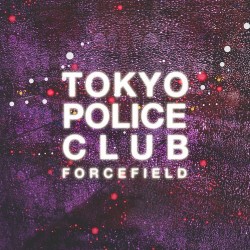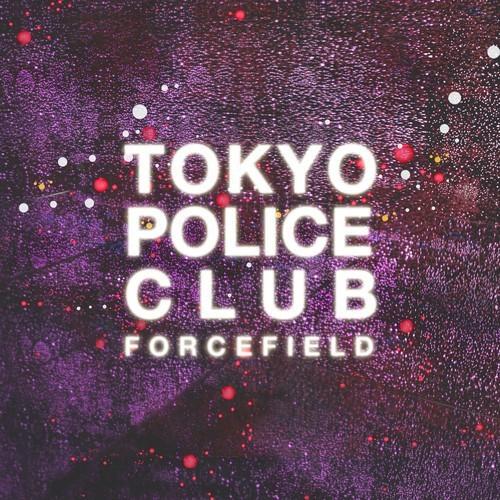Tokyo Police Club’s third studio album, “Forcefield,” takes a step away from the band’s usual alternative rock repertoire. It is upbeat, easy to listen to and keeps heads bobbing, but unfortunately, it’s far from groundbreaking.

“Forcefield” is the Canadian band’s first original album since 2011. Its first two records, “Elephant Shell” in 2008 and “Champ” in 2010, made it onto the Billboard 200. Most recently, the group worked on the “Ten Songs, Ten Years, Ten Days” project, where band members locked themselves in a room for 10 hours during 10 consecutive days to record a cover from each year between 2001 and 2010.
From the first track on, it is easy to recognize that “Forcefield” leans more toward the pop end of the music spectrum than the previous two albums. It is still appealing to the ear, but not exactly what one would expect from Tokyo Police Club.
“Hot Tonight,” the first single from the album, is most notable for its upbeat energy, and it fits very well into the archetype of a radio-friendly single. While it has a catchy melody and solid hook, it can feel a tad “cookie cutter.” It will likely take over the radio waves soon, but some loyal fans might worry what direction the band is going in after hearing it.
The real gem of the album is the first track, “Argentina,” with three parts spanning eight minutes. Of all the songs, this is the one that will remain the album’s most memorable. It has an outstanding progression and, as many songs of this length do, musically expresses the evolution of a certain topic — in this case, love. Though some describe it as an epoch, it is certainly worth the time to sit down and take a listen. As an added bonus, it is just long enough to get you across campus during that leisurely walk or jog.
Unfortunately, the album takes a turn for the boring past “Argentina.” There are no moving ballads that really take hold of the listener. Frankly, none of the songs sound much different from the rest with a similar tempo and style. The members of Tokyo Police Club certainly knew what they wanted this album to feel like and wanted to stick to their gut feelings. Sadly, that plan may have backfired. Trusting their instincts only makes the album and the band seem one-dimensional, with half of the songs being pretty forgettable.
Ultimately, “Forcefield”‘s success really depends on each individual listener. The album could lead to a new demographic enjoying the band, especially since some listeners don’t really care much for variation. It fits with material found on pop radio stations — more than can be said for anything the group has done in the past — which could give the band a wider fan base. On the other hand, it could alienate the people who already like Tokyo Police Club and desire more from their alternative roots.
Fans open to a pop flair will welcome “Forcefield” with outreached arms. Those who feel strongly about the band having a rock sound will not. And if you like listening to underground bands with a new, unique sound, this definitely is not what you are looking for.


